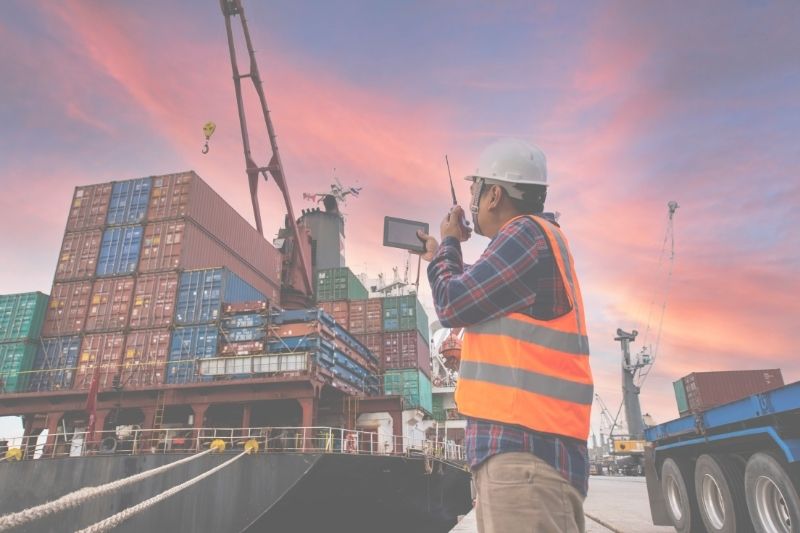
Why hire a freight forwarder
Logistics is one of the most relevant factors in import operations.
As these operations are influenced by structural and legal issues in both countries of origin and destination of the cargo, there are a large number of risks involved and a very high demand for know-how.
In today’s text we will understand together some of the reasons that make freight forwarder/cargo agents the most suitable option when hiring international freight.
What is a freight forwarder?
Before understanding the relevance of this international player, it is important to know who they are and their main characteristics.
According to the definition of the highest body of Brazilian foreign trade regulation – the Brazilian Federal Revenue, a cargo agent is any person who hires and manages the logistics operation on behalf of the importer or exporter.
Far beyond the formal definition, we can understand that freight forwarders are recognized as companies that have expertise in the movement of international cargo, as well as an extensive network of logistics service providers in several countries, and that are able to maintain specific negotiations with the main logistics operators.
A curious fact is that, for the most part, freight forwarders do not have their own fleets of trucks, ships, or aircraft.
They are simply intermediaries that connect importers to the main modal options and conditions for transporting imported volumes, within legal and commercial requirements.
What are the advantages of hiring a freight forwarder?
Now that we know who these freight forwarding companies are, let’s understand why this specialized service can be so relevant.
Relationship
Regular importers in the international market recognize that for the best performance of their operations, a strategic partnership with service providers specialized in this area is necessary.
Cargo agency companies allow importers to have a closer contact with those who will be responsible for moving their products.
This is a very different reality when looking for this same type of proximity with big logistical players such as shipowners and airlines, which are practically intangible.
Through this closer relationship, importers can structure their import demands with greater predictability and always relying on specialist professionals from the logistics partner team at their disposal for eventual changes in plans.
Flexibility
Cargo agents maintain relationships and negotiations with several logistics service providers, which makes them true hubs for transport options.
In this way, unlike shipowners and airlines, cargo agents can adapt each import operation to the needs of each client, respecting, of course, all legislation in force and operational possibilities.
This flexibility provides, in many cases, operations that are much more suited to the internal conditions of the importing company, reducing unnecessary costs and bottlenecks.
Technical knowledge
As we already know, an import operation demands compliance with procedures and the presentation of documents at every stage of the logistics chain.
They are mandatory documents, deadlines, and legal procedures that only those who deeply know all this tangle of aspects can deal with the fluidity and assertiveness that is required.
In this regard, freight forwarders are the providers with the greatest international expertise to meet all the criteria related to international trade.
But that’s not all!
Financial management
In addition to the technical experience that a freight forwarder has, these actors can also be of great help in the financial management of the import operation.
As a rule, the operations carried out are duly charged through billing a few days after the completion of the shipment.
This time gap between the purchase and arrival of the goods gives importers a possibility of planning and cash flow that is of paramount importance for the financial health of the company.
In addition to this aspect, there are many operations in which the importer negotiates to share the responsibility for logistical costs with the exporter of the goods. In these cases, properly oriented cargo agents serve as intermediaries for the execution of the negotiation carried out, pushing away the concern of carrying out international transactions for the payment of fees and services that occur in the country of origin, just to mention one example.
Logistical conditions
One of the biggest difficulties faced by importers is not just the cost of international transport.
Beyond this point, getting spaces on ships and aircraft, on the dates and routes desired by the company, proves to be an arduous task.
This is not a challenge for freight forwarding companies though.
And that’s because of the high volume of cargo handled by these companies, giving them great power of influence and bargaining with logistics operators.
It is important to note that even freight forwarders are subject to global logistical bottlenecks that impact issues such as space and availability of equipment. Despite this, on a daily basis, cargo agents feel less the impact of this problem, unlike importers who try to contract freight directly with shipowners and airlines, for example.
Now, let us ask you a question.
Do you feel the need to promote improvements in the logistics of your imports?
Come talk to our team and find out how we have helped importers to get the best conditions and rates on the market.